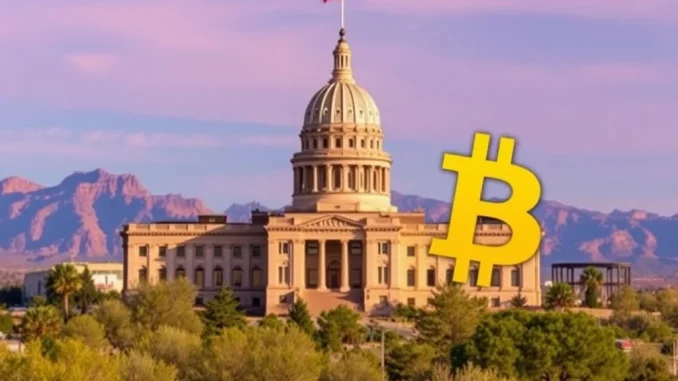
Arizona is making waves in the digital asset space! Governor Katie Hobbs has taken a significant step by signing HB2749 into law. This new legislation establishes a dedicated Bitcoin reserve fund and reserve fund for other digital assets, marking a forward-thinking approach by the state government towards this evolving asset class.
What Does the New Arizona Bitcoin Law Mean?
The core of HB2749 is the creation of the Bitcoin and Digital Assets Reserve Fund. While the specifics of how and when assets will be allocated to this fund are subject to legislative appropriation, the establishment of the fund itself signals Arizona’s intent to hold and manage digital assets.
Beyond just creating the fund, the Arizona digital assets law also addresses practical aspects of managing these assets within a state framework. Key provisions include:
- Establishing clear procedures for identifying and managing unclaimed virtual property.
- Providing safeguards to protect the value of digital assets owned by the state.
Handling Unclaimed Digital Assets in Arizona
One crucial part of this digital assets law deals with what happens when digital assets are left untouched by their owners. The law defines conditions under which digital assets are considered abandoned.
If an owner fails to respond or claim their virtual property within a period of three years, the assets are then deemed abandoned. Following this period, these unclaimed digital assets must be transferred to the Arizona Department of Revenue.
State Custodians and Earning Yield
Interestingly, the law grants state custodians the ability to actively manage these digital assets transferred to the Department of Revenue. This includes the potential to:
- Deposit these assets to earn rewards (like staking yield).
- Receive airdrops associated with the held assets.
Any proceeds generated from these activities – whether from rewards or airdrops – are directed into the newly established Bitcoin reserve fund and Digital Assets Reserve Fund. This provides a potential mechanism for the fund to grow over time through passive income generated from the state’s digital asset holdings.
Arizona Follows a Trend
Arizona’s move isn’t happening in isolation. The announcement, made via a news release on the governor’s official website, highlights a growing trend among U.S. states exploring digital assets. This action follows similar steps taken by states like New Hampshire, where the governor recently signed legislation permitting state funds to invest in Bitcoin and other digital assets. While Arizona’s law focuses specifically on unclaimed property and a reserve fund, it reflects increasing governmental engagement with the digital asset landscape.
Conclusion: A Step Towards Digital Asset Integration
The signing of HB2749 marks a historic moment for Arizona, creating the framework for a Bitcoin reserve fund and a system to manage unclaimed digital assets. This proactive Arizona Bitcoin law not only prepares the state for the future of finance but also sets a precedent for how governments can handle and potentially benefit from digital asset adoption. As more states consider similar legislation, Arizona’s experience will likely serve as a valuable case study in integrating digital assets into traditional state financial structures.



